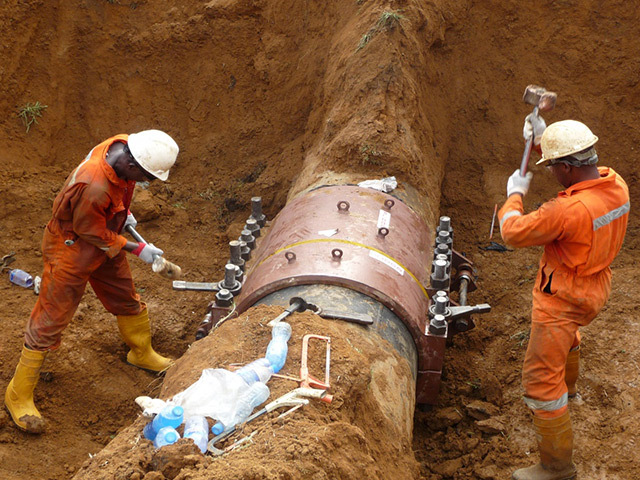
Crude oil stolen from Nigeria is reaching global markets, threatening the integrity of the financial system and legitimate oil trade, according to a report by Chatham House.
Africa’s biggest oil producer lost at least 100,000 barrels a day of oil to theft in the first quarter, according to the report titled “Nigeria’s Criminal Crude: International Options to Combat the Export of Stolen Oil,” the organisation said.
“This illicit oil is likely to have found ready buyers in West Africa, the U.S., Europe and several Asian countries,” authors Christina Katsouris and Aaron Sayne said in the report.
“Stolen Nigerian crude and the profits from it are laundered around the world, threatening the integrity of financial markets and the legitimate oil business.”
Oil theft has hampered output from Nigeria, Africa’s largest oil producer, which depends on crude exports for 80 percent of government revenue and about 95 percent of foreign- currency income.
The Finance Ministry estimates that about 400,000 barrels of crude are stolen daily. Royal Dutch Shell Plc, ExxonMobil Corp., Chevron Corp.,
Total SA and Eni SpA run joint ventures with state-owned Nigerian National Petroleum Corp. that pump most of the country’s oil.
Crude output fell to 1.81 million barrels a day in March, the lowest since September 2009, according to data compiled by Bloomberg. Oil theft cost Africa’s most populous nation, with more than 160 million people, $1.23 billion in the first quarter, according to figures released by state-owned Nigerian National Petroleum Corp. on April 17.
President Goodluck Jonathan is seeking international help to curb crude theft by approaching countries that receive stolen crude from Nigeria or where the proceeds are laundered to help close the loopholes, Petroleum Minister Diezani Alison-Madueke said on Feb. 19. Some of the stolen crude is illegally refined and used locally in the oil-rich Niger River delta, authorities say.
“Nigeria cannot resolve the problem alone, but it needs to take the initiative to develop an achievable strategy with its foreign government partners,” Chatham House said.
“Even then, much more intelligence is needed to connect the very complex issues and range of actors involved.”